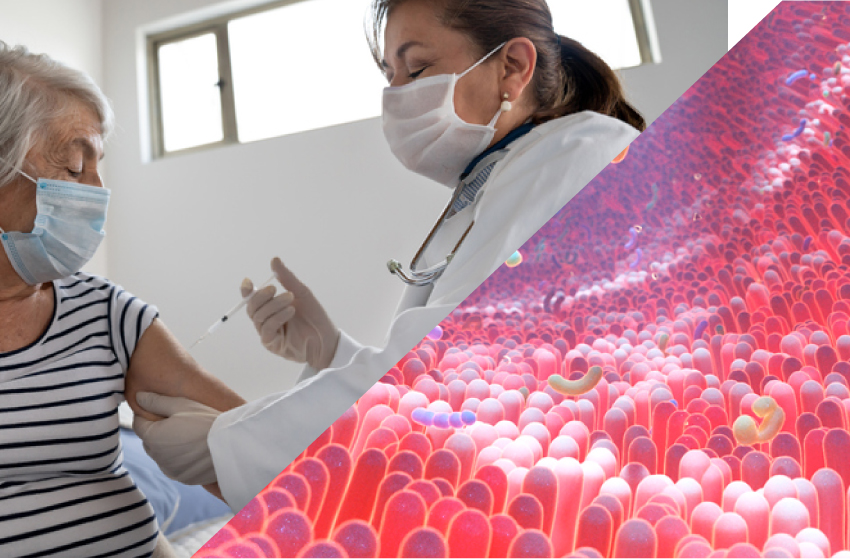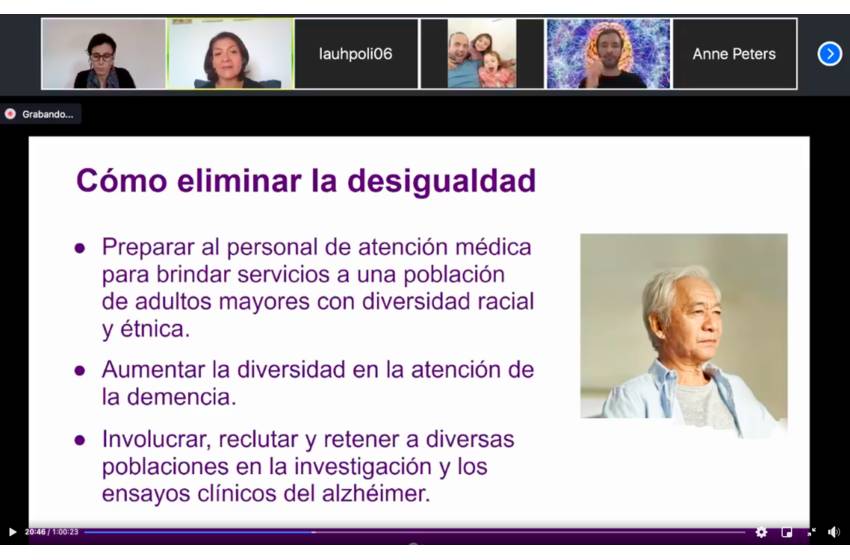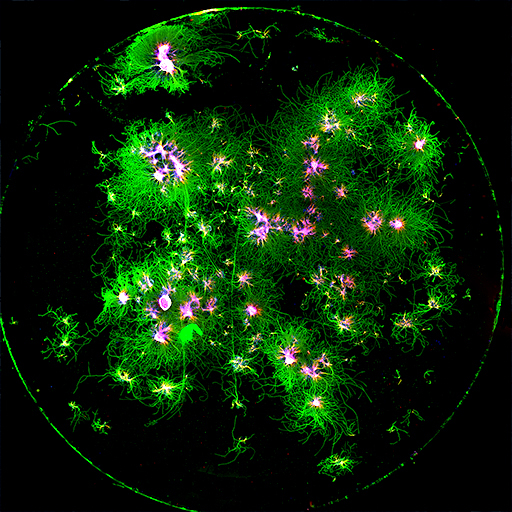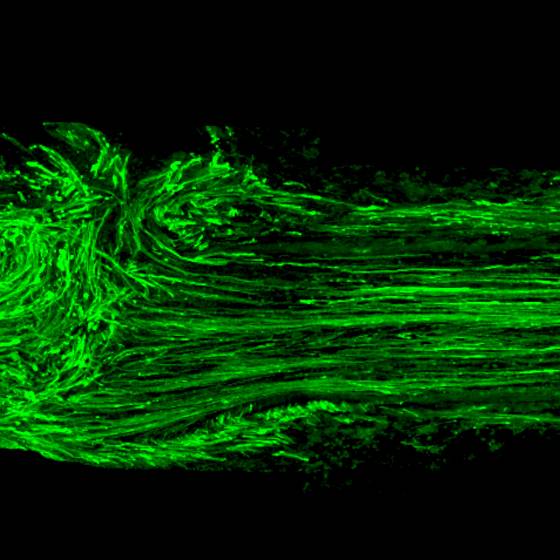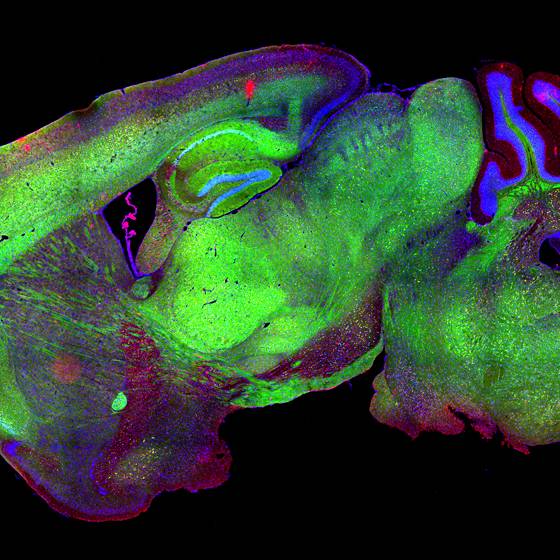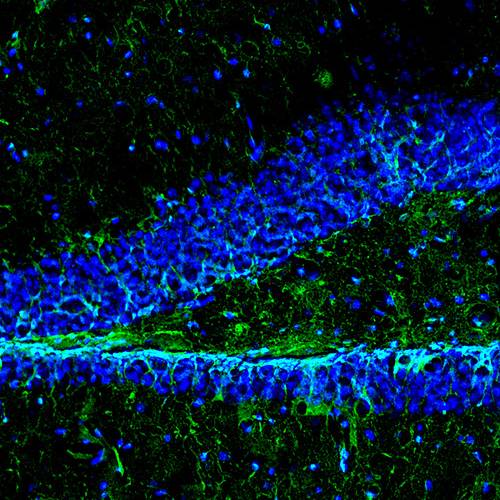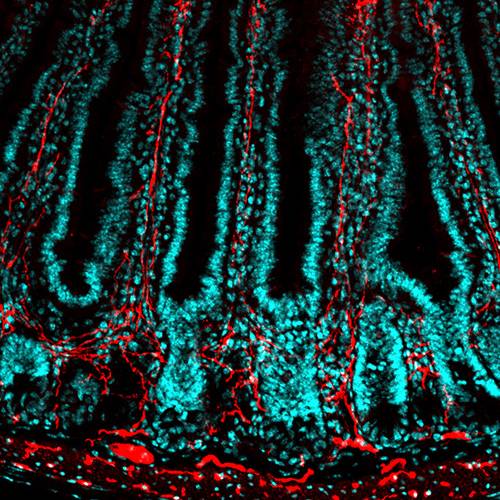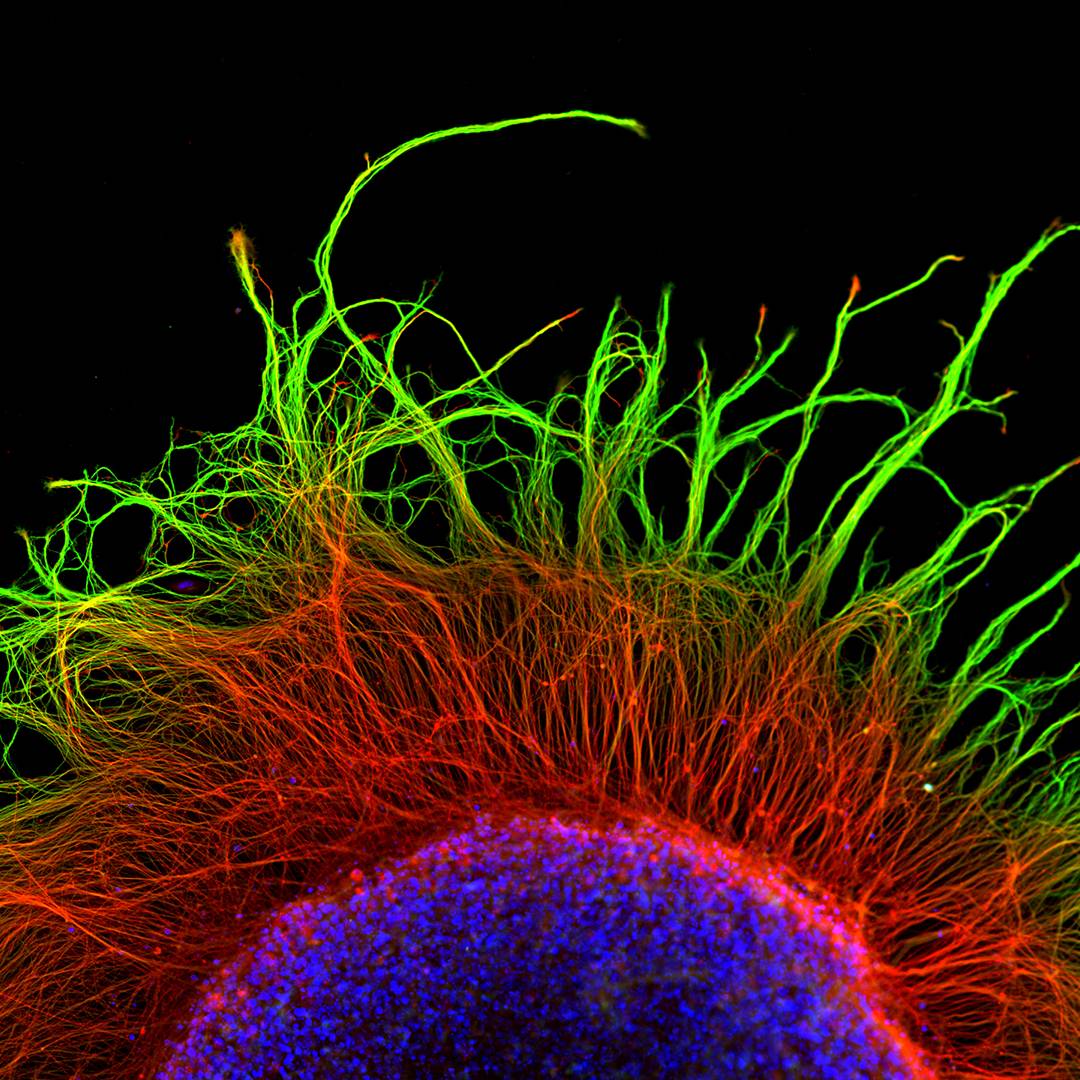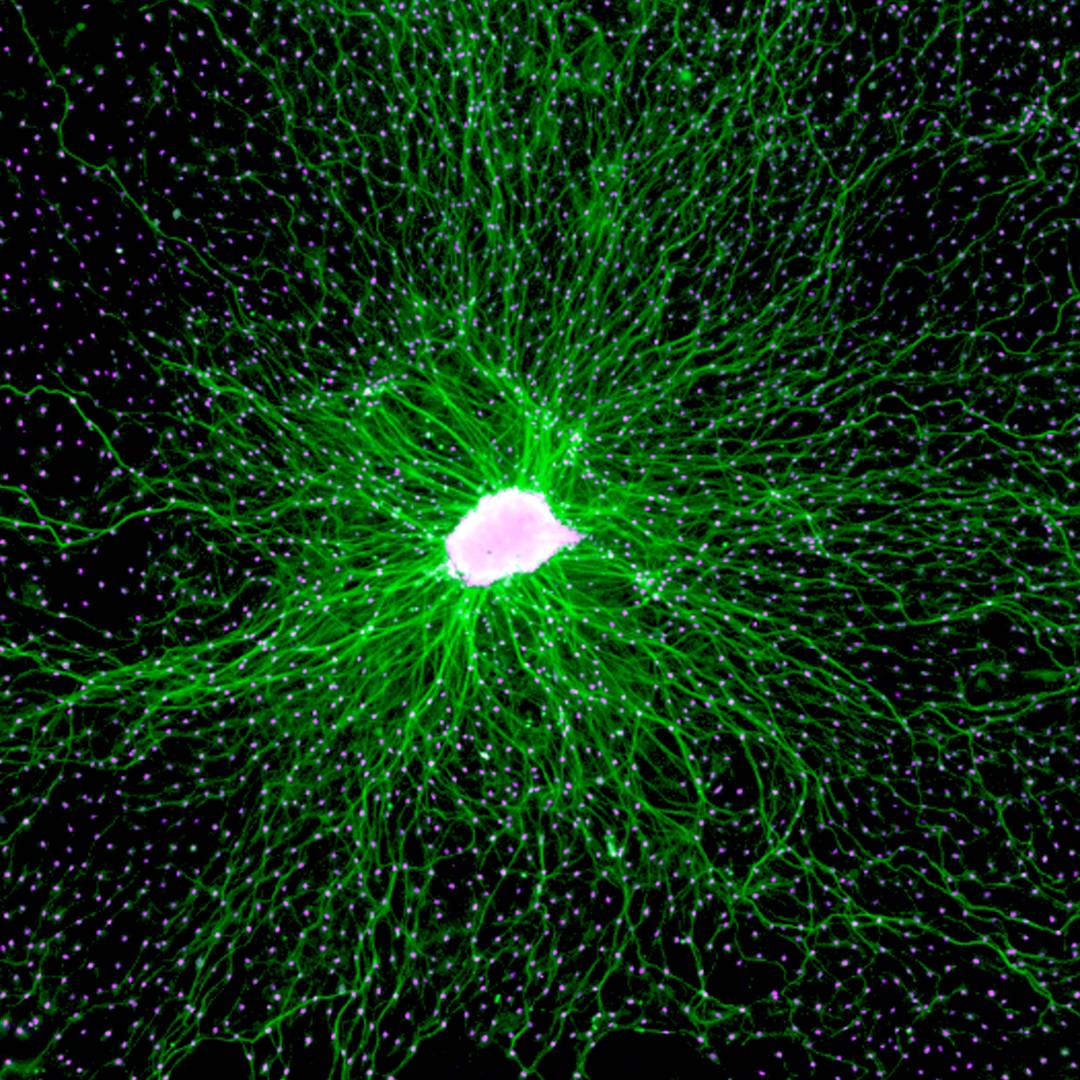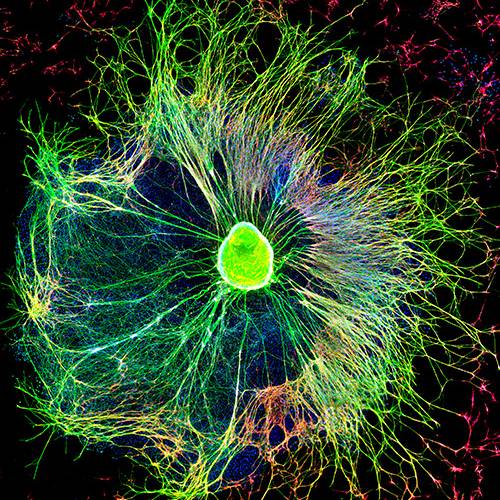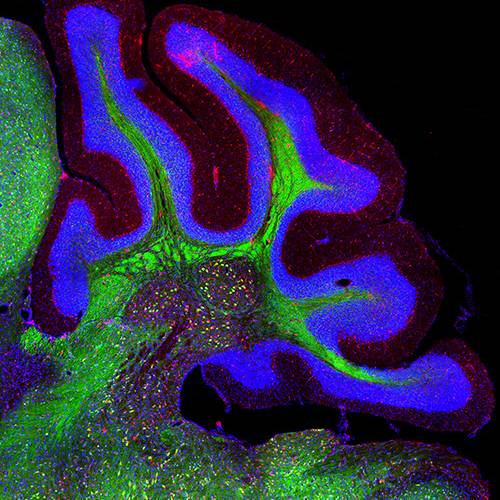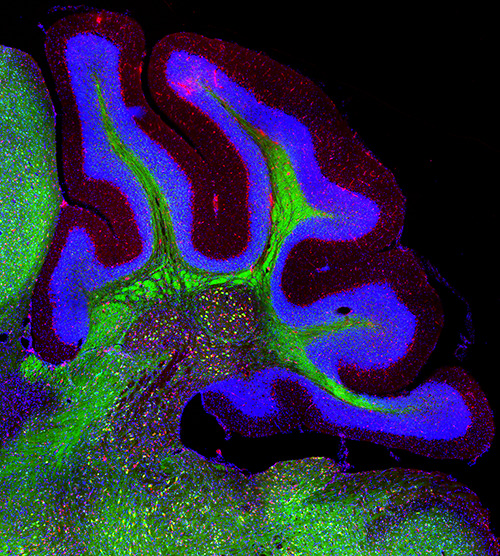Schwann cell regulation of axonal regeneration
In the mammalian nervous system, the regenerative capabilities of neurons show regional variability. In the peripheral nervous system (PNS), axons efficiently regenerate after nerve damage associated to the pro-regenerative effect of Schwann cells. In contrast, in the central nervous system the regenerative capability is poor due to both neuronal intrinsic limitations and glial responses that restrict regeneration. Although, axonal regeneration in the periphery show good regenerative capacity in preclinical models, it still represents a clinical problem associated to delayed repair of peripheral nerves, and the negative effects of aging and other conditions, including diabetes, for axonal regeneration and functional recovery. In the lab, we study how Schwann cells reprogramming regulates axonal regeneration after nerve damage, in order to manipulate this response to enhance axonal regeneration.
Longitudinal section of a sciatic nerve, with regenerating axons crossing a surgically repaired region, axons are labelled using an antibody against the protein SCG10.
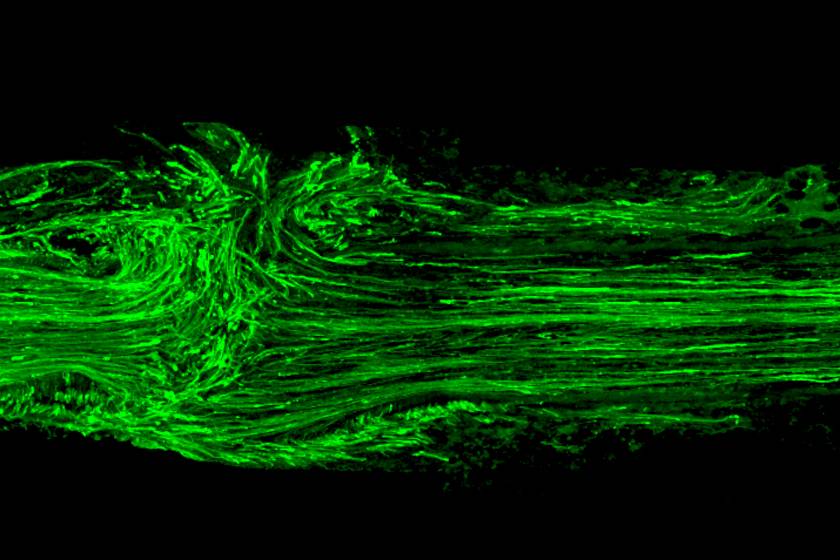
Schwann cell exosomes enhance axonal regeneration
In the peripheral nervous system, regeneration of injured axons depends on the reprogramming of Schwann cell from a differentiated phenotype into a phenotype known as repair Schwann cells. Our lab was the first to demonstrate that Schwann cell exosomes enhanced axonal regeneration in vitro and in vivo in laboratory animals, an effect we later showed was dependent on the reprogramming of Schwann cells into a repair phenotype, and associated with the loading of specific miRNA into exosomes and their transfer to axons. In addition, we are exploring the effects of aging, chronic denervation and diabetes in Schwann cell reprograming and axonal regeneration, in order to develop interventions to enhance axonal regeneration in these conditions.
People involved

Daniela Rebolledo
Senior Research Assistant

I am a Biochemist from Pontificia Universidad Católica de Chile (PUC) and PhD in Cell and Molecular Biology from the same university. My PhD thesis research was performed at the Physiology and Biophysics department, University of Washington. My research has focused on the physiology of the neuromuscular system and the pathological mechanisms behind neuromuscular disorders of diverse etiology.
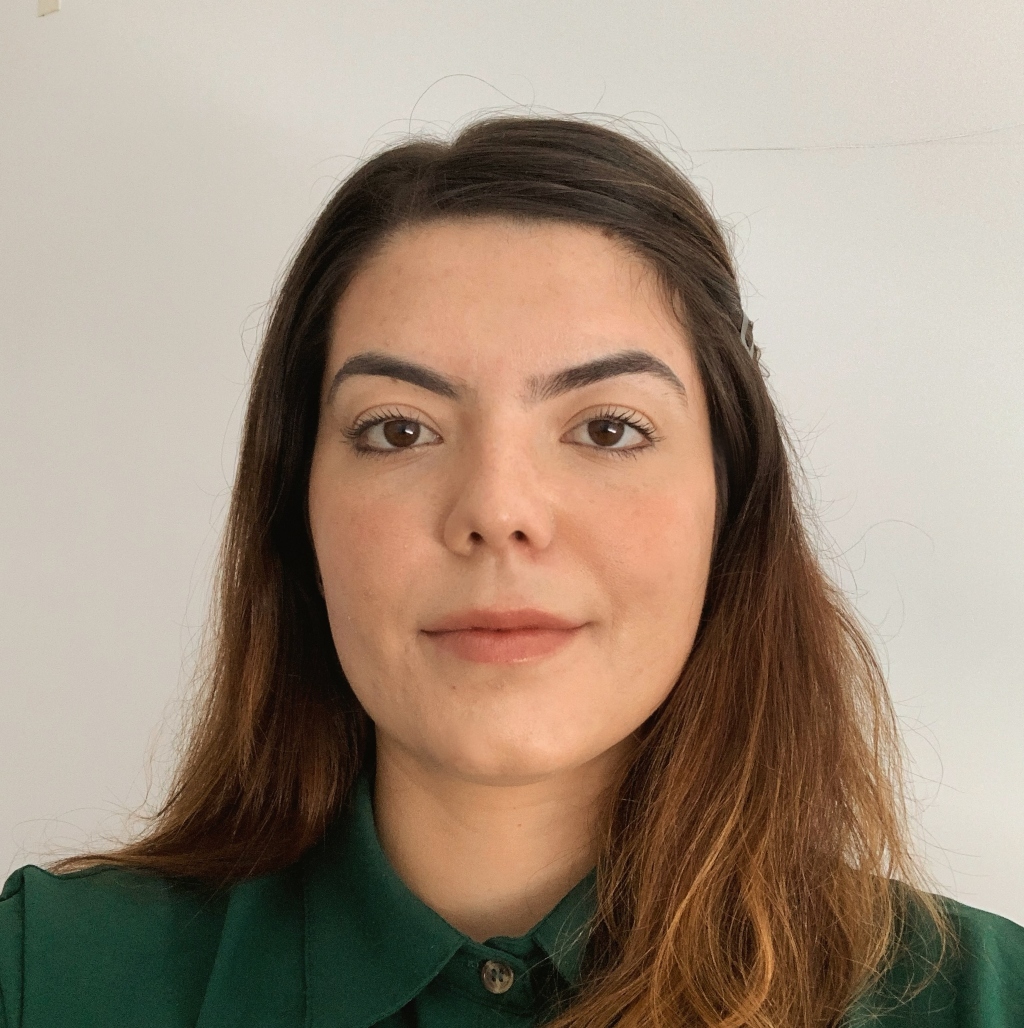
Karina Girardi do Carmo
Postdoctoral fellow

Biologist, Ph.D., and MSc in Cell and Molecular Biology from Oswaldo Cruz Foundation (Fiocruz/RJ). Studying age-dependent decline of regenerative capacity in the peripheral nervous system. Mainly focusing on the contribution of metabolic profile of aging Schwann cells in senescence and particularly exploring the epithelial-mesenchymal transition (EMT) like process.
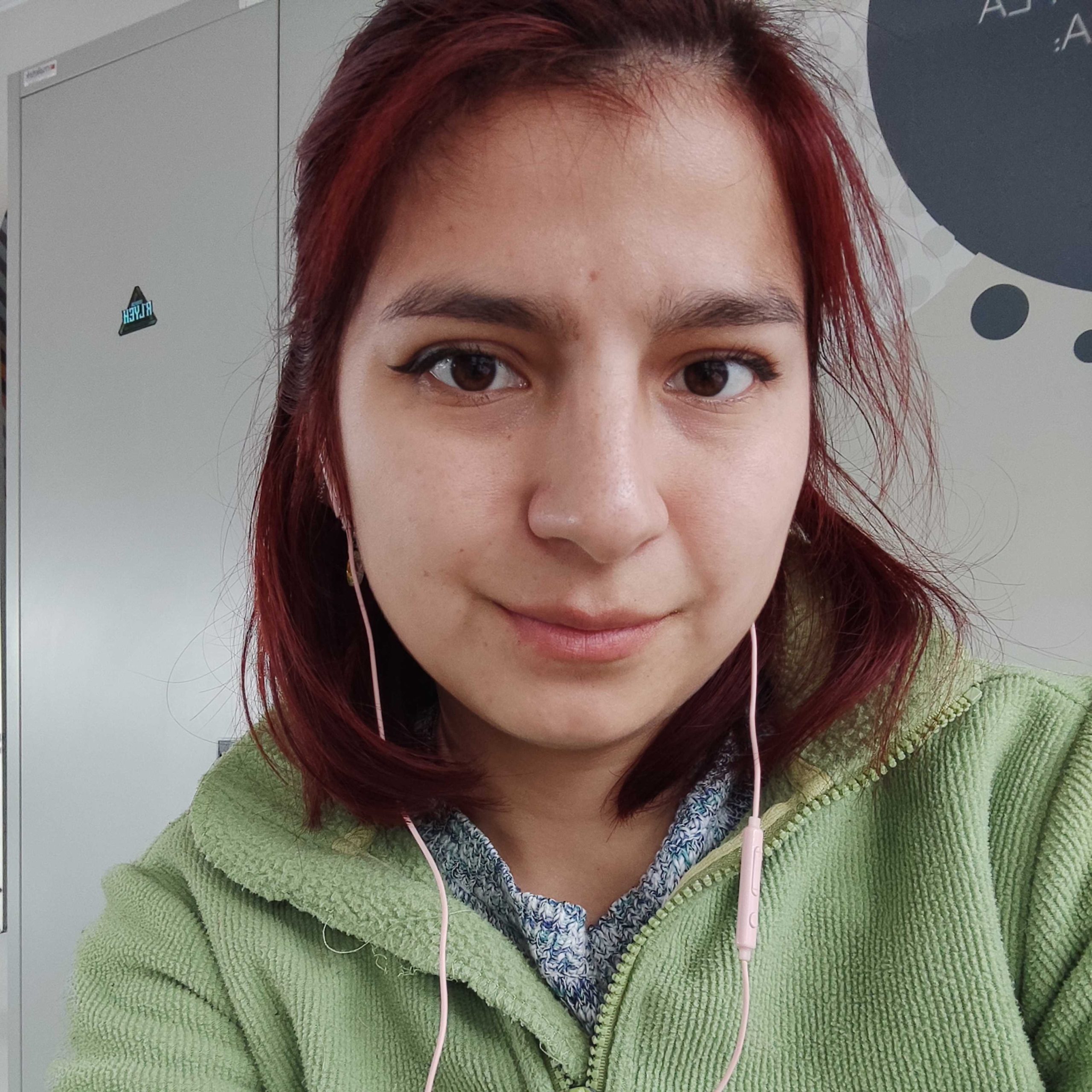
Renata Gallardo
Research Assistant

I studied Medical Technology at the Universidad Mayor acquiring knowledge in histological techniques, immunohistochemistry and immunofluorescence. I am interested in learning more from the world of neurosciences and related pathologies to find new treatments to improve the quality of life in aging.
Related Publications
PUBLICATIONSDataPNSNeuroRegeneration
septiembre 30, 2021
Nerve regeneration in Wld(s) mice is normalized by actinomycin D.
Court F, Alvarez J.
Brain Res. 2000 Jun 9;867(1-2):1-8. doi: 10.1016/s0006-8993(00)02140-5.
PMID: 10837792
Related News
Investigadores U. Mayor estudiarán la relación entre la microbiota y la eficiencia de la vacunación contra el Covid-19 en adultos mayores chilenos
octubre 14, 2021
El proyecto de los académicos del Centro de Biología Integrativa, Erick Riquelme y Felipe Court, fue seleccionado en el Concurso Desafío Global en Longevidad Saludable de la Agencia Nacional de…
Centro Gero estrenó la tercera versión de “GeroTalks” con charla sobre la desigualdad en el Alzheimer
octubre 14, 2021
Este jueves 27 comenzó una nueva edición de ese ciclo de conferencias organizado por el Centro de Gerociencia, Salud Mental y Metabolismo, que reúne a investigadores de la U. Mayor y la U. de Chile.…
